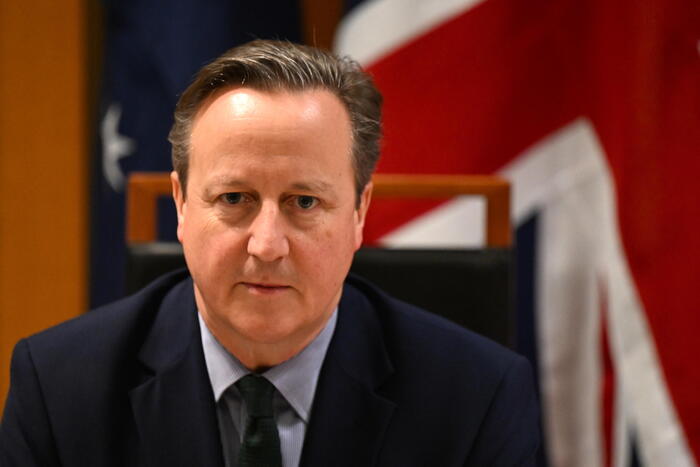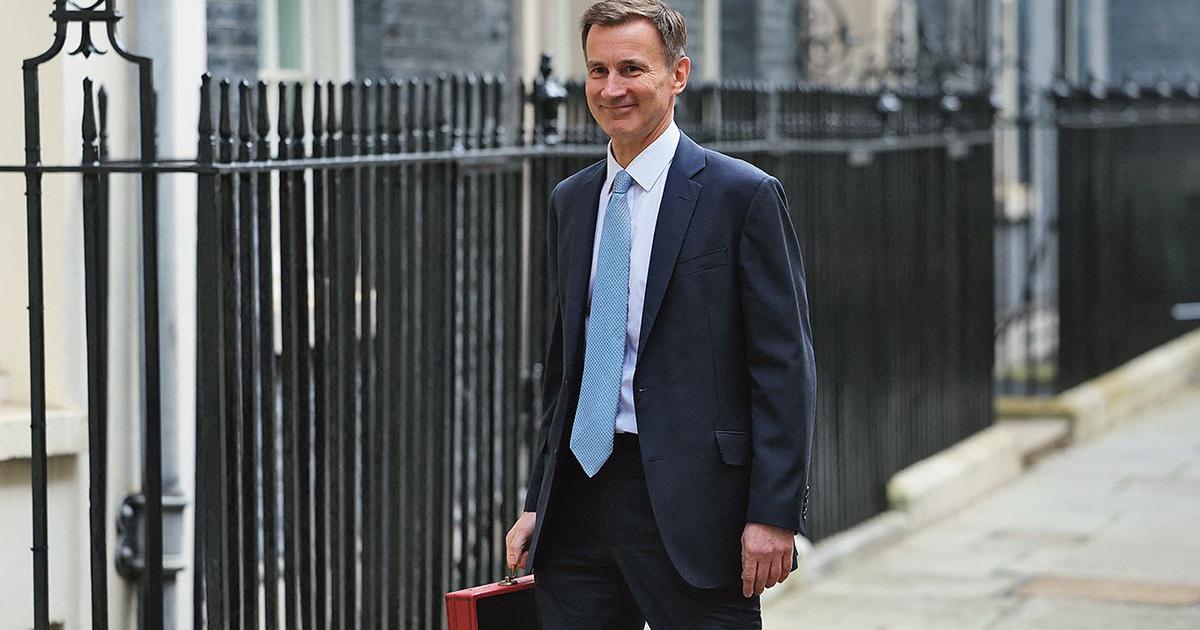United Kingdom and Gibraltar European Union membership referendum
all articles
For the second time ever, Boris Johnson will serve as Prime Minister this afternoon in front of the House of Commons in London. He talks about climate policy, about species protection, about Hong Kong. At some point, it's about free trade. It is the moment when Britain's government loses its power in parliament.
As the TV cameras switch to the opposition banks, they are already moving closer to the Liberals. Phillip Lee has left his place with Johnsons Tories and literally defected. Thus, the majority of the government is gone, even with the help of the Northern Irish DUP, which support the Tories so far. "I wish my honorable friend the best," Johnson Lee smiles smugly. A snappy comment.
In the video: The moment when Johnson loses a deputy
Parliament TV
Brexit has shrunk the Conservative faction. In recent months more and more moderates have left the party. First in protest of Theresa May's course, which had never dared to distance herself decisively from the EU haters on the right. Now Johnson is Prime Minister, the most prominent Brexit hardliner.
The party he is leaving now is no longer the one he had once joined, New Liberal Lee finally announces. "The Conservative government aggressively aggressively drives a harmful Brexit forward."
Brexit appointment is approaching
It is the next leg of a power struggle between the government and parliament, which is likely to shake British politics once more. The Brexit appointment is getting closer and closer. As of today, the United Kingdom is flying out of the EU on 31 October - in doubt, even without an agreement.
So there is little time left - and panic is spreading: those who fear unregulated Brexit without a deal; and those who absolutely want to avoid anyone being able to torpedo the exit.
The latter wants to prevent Johnson. It was one of his key campaign promises to take Britain out of the EU by the end of October - "come what may." The PM is doing something to stop the MPs getting in his way. With his decision to put the parliament in a forced break for several weeks soon, he plunged the kingdom into a real constitutional crisis.
Bitter defeat for Johnson
But whether the Premier gets through is completely open. Already on the first day of the session after the summer break, the opposition, along with some Johnson critics, rehearses the uprising at the Tories. With the help of lower house spokesman John Bercow they put through a so-called emergency debate, at the end of which they give the government a bitter defeat.
328 parliamentarians voted in favor of bringing in legislation on Wednesday that is not supported by Downing Street - including 21 Tories. Only 301 hold to the government. The deputies are thus basically hijacking the agenda, because what is on the agenda in the lower house actually determines the government. Own legislative offensives of the opposition are usually hardly possible. But this Wednesday already.
It is Part 1 of an announced revolt, the basic requirement for the Johnson critics to be able to do something about a no-deal Brexit. A law is planned that would force the government to request a three-month postponement of the withdrawal date in Brussels if Parliament does not accept in good time a Brexit deal with the EU.
However, hardly anyone expects such an agreement. Johnson presses the EU negotiators with maximum demands, wants to delete about the controversial backstop special solution for Northern Ireland from the contract. Brussels, on the other hand, does not even think about reopening the agreements made with John's predecessor May.
more on the subject
Rebels under pressure
Hard Brexit or postponement - everything points to a decision between these two alternatives. But would Johnson even accept Parliament's decision against his will? There is at least doubt about that. Although Johnson emphasizes that he will "respect the law". But he also says there are "no circumstances in which I would ask the European Union for a reprieve."
In fact, Johnson is likely to reach deep into the parliamentary bag of tricks to stop the unwelcome law. It is said, for example, that he instructed his people in the House of Lords to stop the decision-making process by talking persistently.
However, the prime minister proves that he is ready for full escalation on Tuesday evening. A few minutes after the vote broke a spokesman announces, according to media reports, the deviants from their own ranks would be thrown out of the party. It is a historic step: Tory greats such as Ken Clark or Philipp Hammond, until a few weeks ago Chancellor of the Exchequer, are no longer part of the Conservatives in Parliament.
Preparation for new elections
In new elections, those affected would not be set up. These have become inevitable anyway - at least now that Johnson no longer has a majority. But the difficult balance of power in the lower house has made stable governance almost impossible before. The Premier knew that, too.
Since taking office in July, Johnson has prepared the Tories for an election campaign. He brought campaign-proven personnel into his team, put a Cabinet on, that it can easily compete with the right-wing populist Brexit party. Johnson clearly positions the Tories in the anti-EU camp. In addition he made expensive promises: more money for the health system NHS, for the police, for education.
Now the clear-cut in its own ranks. In the evening, Johnson announces, apparently upset, an application for new elections, should pass on Wednesday the anti-no-deal law, the lower house. Voters should decide before the EU summit on 17 October whether Labor leader Jeremy Corbyn in Brussels should "beg" for a postponement, he complains. In any case, he would prevail as a victorious Premier a deal.
Huge risk
In fact, a new election would be before the Brexit appointment, in the conversation is about October 14, an enormous risk. Even though Johnson's battered party has recently recovered somewhat in the polls. Admittedly, this would offer the opportunity to create clear conditions in order to pull out of the EU in peace. But the danger is great that there will be a stalemate in parliament again.
In contrast, after October 31, Johnson could be the big winner in the case of Brexit. And even with a forced delay, he could still blame Parliament for publicity - and stage a fight between MPs and the people.
In Westminister therefore makes this rumor the round: Johnson rely on quick new elections to dissolve the disturbing parliament. As Prime Minister, however, the exact election date is in his hands. Later he could postpone the vote yet to November.
In the opposition, one seems to suspect something like that: To enforce new elections, Johnson requires a two-thirds majority in the lower house. Labor, however, hesitates - though the party itself has been pressing for an early election for months. Jeremy Corbyn said on Tuesday that Johnson could quietly apply for a new election - but first the anti-no-deal law would have to pass through parliament.








/cloudfront-eu-central-1.images.arcpublishing.com/prisa/AMBABVJIZHEE6NLMK73CXTWI5I.jpg)
